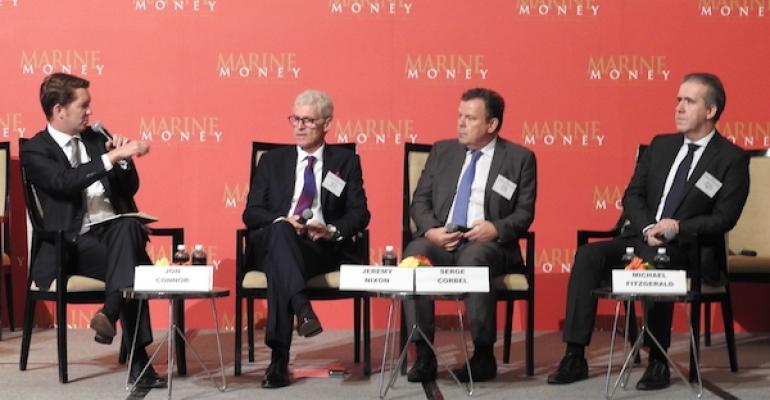The IMO 0.5% global low sulphur cap that comes into force on 1 January 2020 will cost container lines an estimated $15bn at a time when freight rates barely cover costs. On Monday the world's largest container line Maersk announced a Bunker Adjustment Factor (BAF) from the start of next year which it said would provide its customers with predictability of additional fuel costs.
Read more: Maersk Line in new fuel surcharge to recover $2bn in extra costs from 2020 sulphur cap
Jeremy Nixon, ceo of ONE, told delegates at the Marine Money Asia conference that costs would “absolutely have to be passed on” noting that currently freight rates didn't cover costs.
“The industry must be serious about that and all customers when we talk to them I think understand that its just ensuring there is a common way of passing on that cost,” he said.
Michael Fitzgerald deputy cfo of Orient Overseas International Ltd (OOIL), parent of OOCL, agreed the cost had to passed on, and also wanted see transport cost passed on the ultimate end user – the consumer. “The result of that is passing on the transportation to the very end user – the person buying the pair of trainers or the t-shirt.”
He believes container lines have no option but to pass the cost onto shippers. “Ultimately it has to happen just because of the sheer scale of it shipping companies cannot fund it even if they wanted to,” he stated.
APL cfo Sege Corbel noted the new surcharge annoucement by Maersk and said: “There is no question it must be passed onto the customer, but it must be passed on in a way that is transparent. Today transparency is a bit difficult.”
One of the longstanding complaints of shippers is that surcharges by container lines do not accurately reflect the costs they are supposed to be for and are instead used by lines to increase the freight rate by other means.
Copyright © 2024. All rights reserved. Seatrade, a trading name of Informa Markets (UK) Limited. Add Seatrade Maritime News to your Google News feed.


